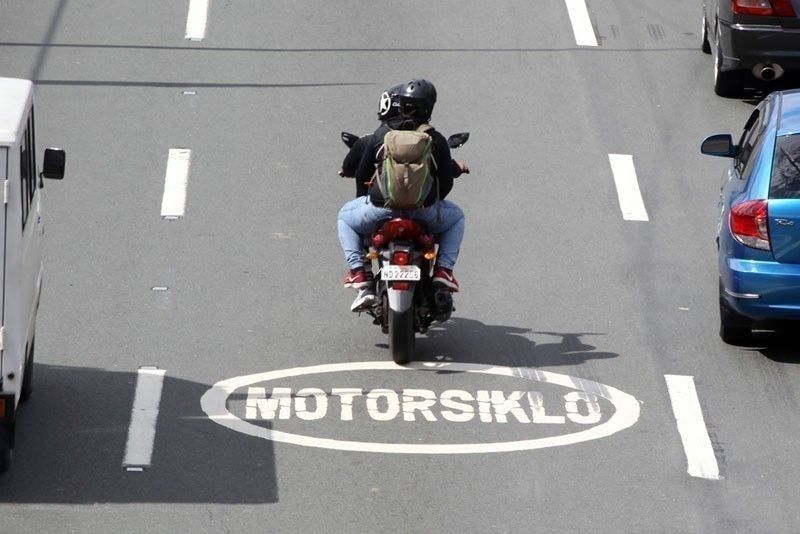Energy specialist backs tax breaks for e-motorcycles
File photo of a motorcycle traveling along EDSA. STAR / File MANILA – Giving tax incentives to e-motorcycles is justified because of their proven contribution in reducing carbon emissions, a specialist from the Department of Energy (DOE) said. Andre Reyes, a science research specialist from the DOE, emphasized e-motorcycles’ importance in helping the country eventually […]


File photo of a motorcycle traveling along EDSA.
STAR / File
MANILA – Giving tax incentives to e-motorcycles is justified because of their proven contribution in reducing carbon emissions, a specialist from the Department of Energy (DOE) said.
Andre Reyes, a science research specialist from the DOE, emphasized e-motorcycles’ importance in helping the country eventually shift to electric vehicles.
He pointed this out especially since transportation continues to be a major source of carbon emissions.
Reyes thus backed the need to expand Executive Order No. 12 series of 2023, which grants tax breaks to several types of EVs.
Under EO12’s current version, different types of EVs have received tax breaks, while e-motorcycles are still subject to a 30% tariff rate.
“This proposed coverage expansion will send a clear price signal for consumers to switch to EVs, which are more efficient and cheaper to run per kilometer, and assist in energy self-sufficiency,” Reyes said in a recent public hearing on revising EO12.
Data from DOE shows that using e-motorcycles helps avoid around 8.5 kilograms of carbon dioxide compared to internal combustion engine (ICE) motorcycles.
Using e-motorcycles is also more efficient, as they only cost P0.34 and save 1.72 liters of fuel per kilometer compared to their ICE counterpart, which burns P1.20 per kilometer.
The DOE also wants to increase the country’s EV fleet by 50%, or an additional 2.4 million units.
According to the Statista Research Department, motorcyclists account for approximately 7.81 million registered vehicles in the country in 2022, making them the most popular vehicle type among motorists.
The transportation sector alone is responsible for emitting 35.42 million tons of carbon dioxide in 2022, which contributes to climate change, data from Statista showed.
Stakeholders have been advocating for tax cuts to facilitate the mainstreaming of e-motorcycles, noting their significant contribution to the environment once riders shift to EVs.
EO12’s revision is mandated a year after it took effect, and the Tariff Commission (TC) and the National Economic Development Agency (NEDA) will lead its review and public hearings before submitting their recommendations to the Office of the President.
The revision of EO12 was formally started during a public hearing last March 13, which was attended by stakeholders from different industries who aired their support for e-motorcycles tax breaks.
EO12 was enacted to complement the Electric Vehicle Industry Development Act to create an industry for EVs in the country and help reduce carbon emissions, in compliance with the Philippines’ commitment to the Paris Agreement. It modifies the tariff rates for EVs to help mainstream their use among Filipinos.














